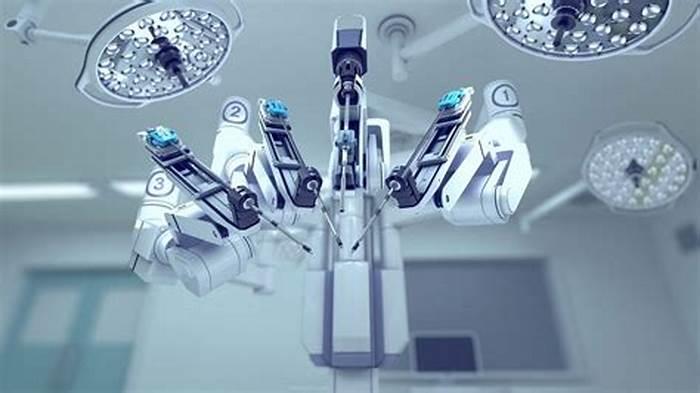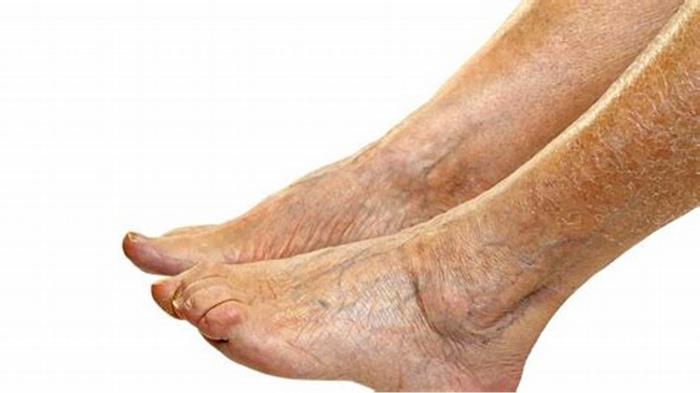The need for innovative surgical techniques in cardiac care has led to the rise of robotic heart surgery, a minimally invasive option that provides significant benefits for patients suffering from various heart conditions. As the prevalence of heart disease continues to grow, so does the demand for effective and efficient treatment methods. Robotic heart surgery allows for enhanced precision and control, enabling surgeons to perform complex procedures with less trauma to the body compared to traditional open-heart surgery.
What Is Robotic Heart Surgery? A Brief Overview
Robotic heart surgery is a surgical technique that employs robotic systems to assist surgeons in performing heart procedures with greater accuracy and minimal invasiveness. The surgeon operates from a console, utilizing robotic arms equipped with specialized instruments and high-definition, 3D visualization. This method allows for smaller incisions, leading to reduced recovery times and less postoperative discomfort. Robotic heart surgery can be employed for a variety of cardiac procedures, including coronary artery bypass grafting, valve repairs, and atrial septal defect closures, making it a versatile option in modern cardiac care.
Recognizing Common Heart Conditions Treated with Robotics
Several common heart conditions can be effectively treated using robotic surgery. Among these, coronary artery disease is prevalent and involves blockages in the arteries that supply blood to the heart. Additionally, heart valve disorders, such as mitral regurgitation and aortic stenosis, often require surgical intervention, making robotic techniques highly beneficial. Atrial septal defects (ASDs), which are congenital heart defects, are also increasingly treated with robotic methods, showcasing the versatility of this approach in addressing various cardiac issues.

Chest Pain: A Key Indicator of Underlying Heart Issues
Chest pain is one of the most recognizable symptoms of heart problems, prompting individuals to seek medical evaluation. It can be a sign of various heart conditions, including coronary artery disease, angina, or heart attacks. In cases where chest pain is persistent or associated with other symptoms, such as shortness of breath or palpitations, it may indicate the need for surgical intervention. Robotic heart surgery can be an effective solution for patients experiencing significant chest pain due to underlying cardiac issues, offering relief and improved heart function.
Shortness of Breath: When It Signals a Need for Surgery
Shortness of breath, or dyspnea, can arise from a range of cardiac conditions, often indicating that the heart is struggling to pump blood efficiently. This symptom can be particularly concerning when it occurs during physical activity or at rest. Patients experiencing unexplained or progressive shortness of breath should be evaluated for potential heart issues that may require surgical intervention. Robotic heart surgery offers a less invasive option for patients with conditions contributing to breathlessness, allowing for targeted treatment that can significantly improve quality of life.
Palpitations: Understanding Irregular Heartbeats
Palpitations, or the sensation of an irregular heartbeat, can be alarming and may signal underlying heart problems such as arrhythmias or structural heart defects. While palpitations are often benign, they can also indicate more serious conditions that require intervention. For patients with persistent or symptomatic palpitations, robotic heart surgery can provide an effective treatment option, addressing the root cause of the irregularities and restoring normal heart rhythm.
Fatigue and Weakness: Symptoms of Heart Disease
Fatigue and weakness are common symptoms that can arise from various health issues, including heart disease. When the heart is not functioning optimally, it may fail to supply adequate oxygen and nutrients to the body, leading to feelings of tiredness and decreased stamina. For patients experiencing unexplained fatigue along with other cardiac symptoms, it is essential to seek medical evaluation. Robotic heart surgery can be a valuable option for treating underlying heart conditions contributing to these symptoms, ultimately improving the patient’s overall energy levels and quality of life.
Swelling in the Legs and Feet: A Sign of Heart Failure
Swelling in the legs and feet, known as peripheral edema, can be a significant indicator of heart failure. When the heart is unable to pump blood efficiently, fluid may accumulate in the lower extremities, leading to discomfort and visible swelling. This symptom often signifies that the heart is struggling to maintain adequate circulation, necessitating prompt medical evaluation.

Dizziness and Fainting: Potential Indicators of Serious Conditions
Experiencing dizziness or fainting spells can be alarming and may signal serious underlying health issues, particularly related to cardiovascular conditions. These symptoms could indicate low blood pressure, arrhythmias, or reduced blood flow to the brain. If these episodes occur frequently or are accompanied by other concerning signs, it's essential to seek medical attention immediately.
Unexplained Weight Gain: Fluid Retention Related to Heart Issues
Rapid or unexplained weight gain can be a warning sign of fluid retention, often linked to heart problems. When the heart is unable to effectively circulate blood, excess fluid can accumulate in the body, leading to noticeable weight gain over a short period. This symptom should not be ignored, especially if accompanied by other signs of heart distress.
Symptoms of Valve Problems: Clicks, Swishes, and Changes
Valve problems in the heart can manifest through distinct sounds and sensations, such as clicks, swishes, or changes in heartbeats. Patients may also experience fatigue, shortness of breath, or swelling. If you notice unusual heart sounds or any of these accompanying symptoms, it is crucial to consult a healthcare provider for further evaluation.
Arrhythmias: When Heart Rhythm Disturbances Require Attention
Arrhythmias, or irregular heartbeats, can range from harmless to life-threatening. Symptoms may include palpitations, fluttering sensations, or a feeling of the heart racing. If these symptoms are persistent or accompanied by chest pain or shortness of breath, immediate medical attention is required to assess the underlying causes and determine the appropriate treatment.
Signs of Coronary Artery Disease: What to Look For
Coronary artery disease (CAD) can present with several key symptoms, including chest pain, shortness of breath, and fatigue during exertion. Patients may also experience indigestion or discomfort that radiates to the arm, neck, or jaw. Recognizing these signs early is vital for timely intervention and management of this potentially life-threatening condition.
The Role of Diagnostic Tests in Identifying Surgical Needs
Diagnostic tests play a crucial role in determining the need for heart surgery. Tests such as echocardiograms, stress tests, and angiograms provide essential information about heart function, valve condition, and blood flow. These assessments help cardiologists make informed decisions regarding surgical intervention, tailoring treatment plans to individual patient needs.
When to Seek a Second Opinion About Heart Surgery
If you're facing the prospect of heart surgery, seeking a second opinion can be beneficial. This additional perspective may provide reassurance, alternative treatment options, or confirmation of the recommended approach. It's essential to feel confident and informed about the decision-making process regarding your heart health.
The Importance of Early Detection and Intervention
Early detection and intervention for heart conditions significantly improve outcomes. Recognizing symptoms early can lead to timely diagnosis and treatment, potentially preventing the progression of heart disease and reducing the risk of serious complications. Regular check-ups and being aware of personal risk factors are key components of proactive heart health management.
Preparing for a Consultation: Questions to Ask Your Doctor
When consulting with a healthcare provider about heart health, it's essential to come prepared with questions. Consider asking about your diagnosis, treatment options, potential risks, and lifestyle changes to support your heart health. This proactive approach can lead to a more productive consultation and clearer understanding of your condition.
Understanding Your Risk Factors for Heart Disease
Understanding personal risk factors for heart disease, such as family history, lifestyle choices, and underlying health conditions, is crucial in preventing heart issues. Factors like high blood pressure, diabetes, smoking, and obesity contribute to heart disease risk. Awareness allows individuals to take proactive measures to improve their heart health and reduce their risk.
The Impact of Lifestyle Changes on Heart Health
Making positive lifestyle changes can have a profound impact on heart health. Regular exercise, a balanced diet, quitting smoking, and managing stress can significantly reduce the risk of heart disease. These changes not only improve overall health but also enhance the quality of life for individuals at risk for cardiovascular conditions.
Common Conditions Treated with Robotic Heart Surgery
Discover the common conditions that robotic heart surgery can address. This section details various heart diseases and structural abnormalities that can be effectively treated using robotic techniques, offering patients less invasive options with shorter recovery times.
Benefits of Robotic Heart Surgery Compared to Traditional Methods
Explore the advantages of robotic heart surgery over traditional surgical methods. This section highlights benefits such as reduced trauma to the body, shorter hospital stays, and improved precision during surgery, leading to enhanced recovery and outcomes for patients.
Conclusion: Recognizing the Signs and Taking Action
Recognizing the signs of potential heart issues and taking action is crucial for maintaining heart health. By being vigilant about symptoms and understanding personal risk factors, individuals can seek timely medical intervention, leading to better outcomes and improved quality of life. Empowering oneself with knowledge and proactive health management is key to preventing heart disease.
Best Robotic Heart Surgery in India
The Best Robotic Heart Surgery in India offers a minimally invasive approach to complex heart procedures, utilizing robotic technology to improve precision and reduce recovery time.
Robotic Heart Surgery Cost in India
The robotic heart surgery cost in india is competitive, offering patients affordable options for high-precision heart surgery with transparent pricing and accessible care.
Best Robotic Heart Surgeons in India
The Best Robotic Heart Surgeons in India are highly trained in robotic techniques, providing personalized care and expert precision in complex heart surgeries.
FAQ
What are the early signs that may indicate the need for heart surgery?
Early signs may include persistent chest pain, shortness of breath, extreme fatigue, and swelling in the legs or feet. If you notice these symptoms, consult a healthcare provider for evaluation.
How can I tell if my chest pain is serious enough for surgery?
If chest pain is severe, persistent, or accompanied by other symptoms like shortness of breath, dizziness, or radiating pain, it is crucial to seek medical attention immediately.
Are there specific symptoms associated with heart valve problems?
Yes, symptoms may include heart murmurs (clicks or swishes), fatigue, shortness of breath, and swelling in the legs. Any unusual heart sounds or discomfort should prompt a consultation with a healthcare provider.
What should I do if I experience frequent palpitations?
If you experience frequent palpitations, especially if accompanied by dizziness, chest pain, or shortness of breath, it is important to consult a healthcare provider to assess the cause.
How important is early intervention for heart conditions?
Early intervention is crucial for improving outcomes in heart conditions. Recognizing symptoms and seeking timely medical care can help prevent complications and enhance treatment effectiveness.
Explore the Best Heart Care Resources in India
Find some of the top cardiologist, surgeons and the best heart hospitals in India
Best Heart Hospitals in India
Choosing the right hospital is crucial for successful heart treatments. If you want to explore trusted options, check the list of Best Heart Hospitals in India offering world-class facilities, advanced cardiac care units, and experienced teams for both simple and complex procedures.
Best Cardiologists in India
Finding the right cardiologist can make a huge difference in early diagnosis and long-term heart health. If you are looking for the Best Cardiologists in India, see this curated list of experts who specialize in preventive care, interventional cardiology, and complex heart disease management. Check the full list Best Cardiologists in India.
Best Cardiac Surgeons in India
If you are planning for heart surgery and need top-level expertise, we recommend exploring the Best Cardiac Surgeons in India. These surgeons have a proven record in performing bypass surgeries, valve replacements, and minimally invasive heart operations with excellent outcomes.